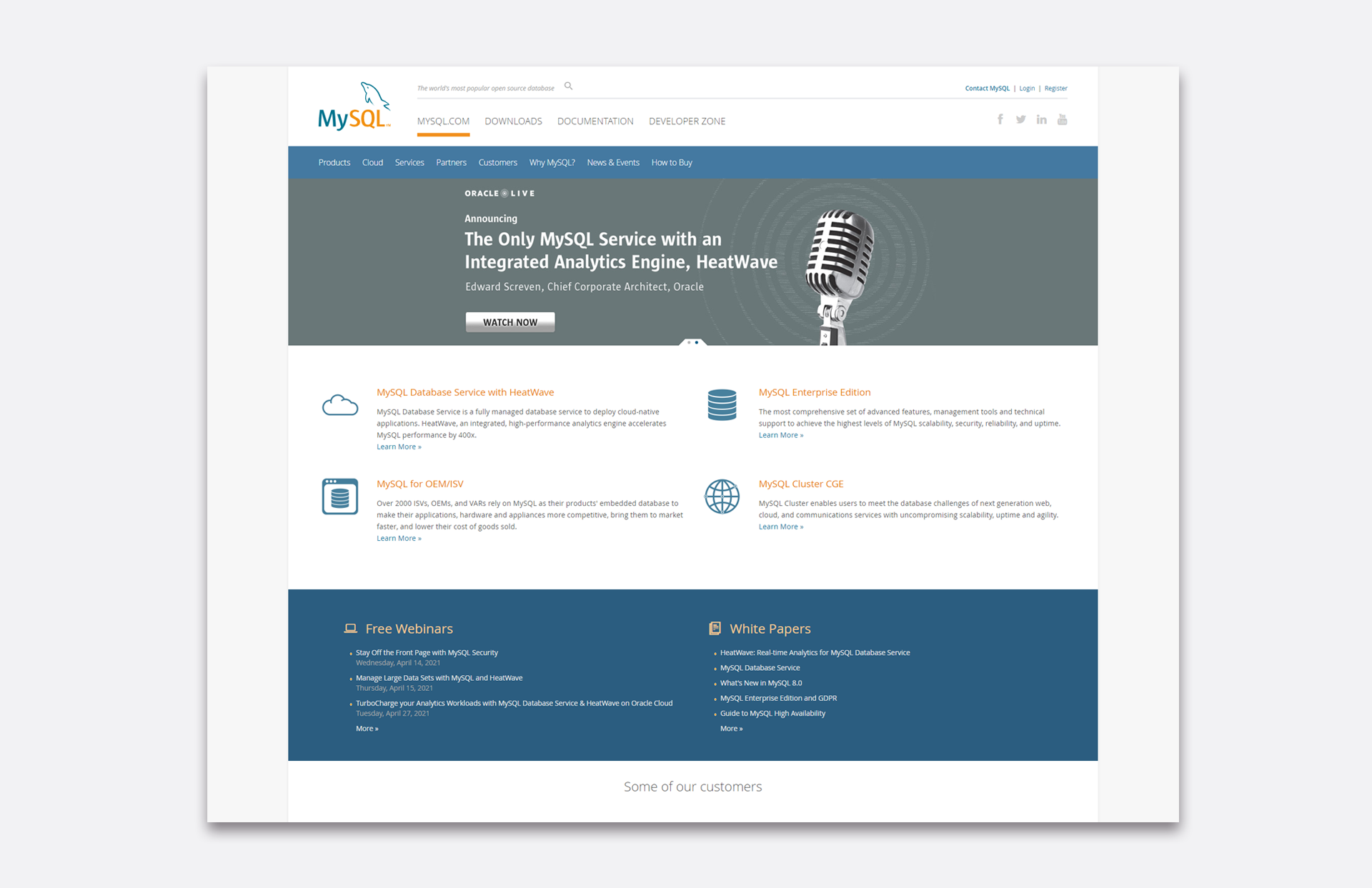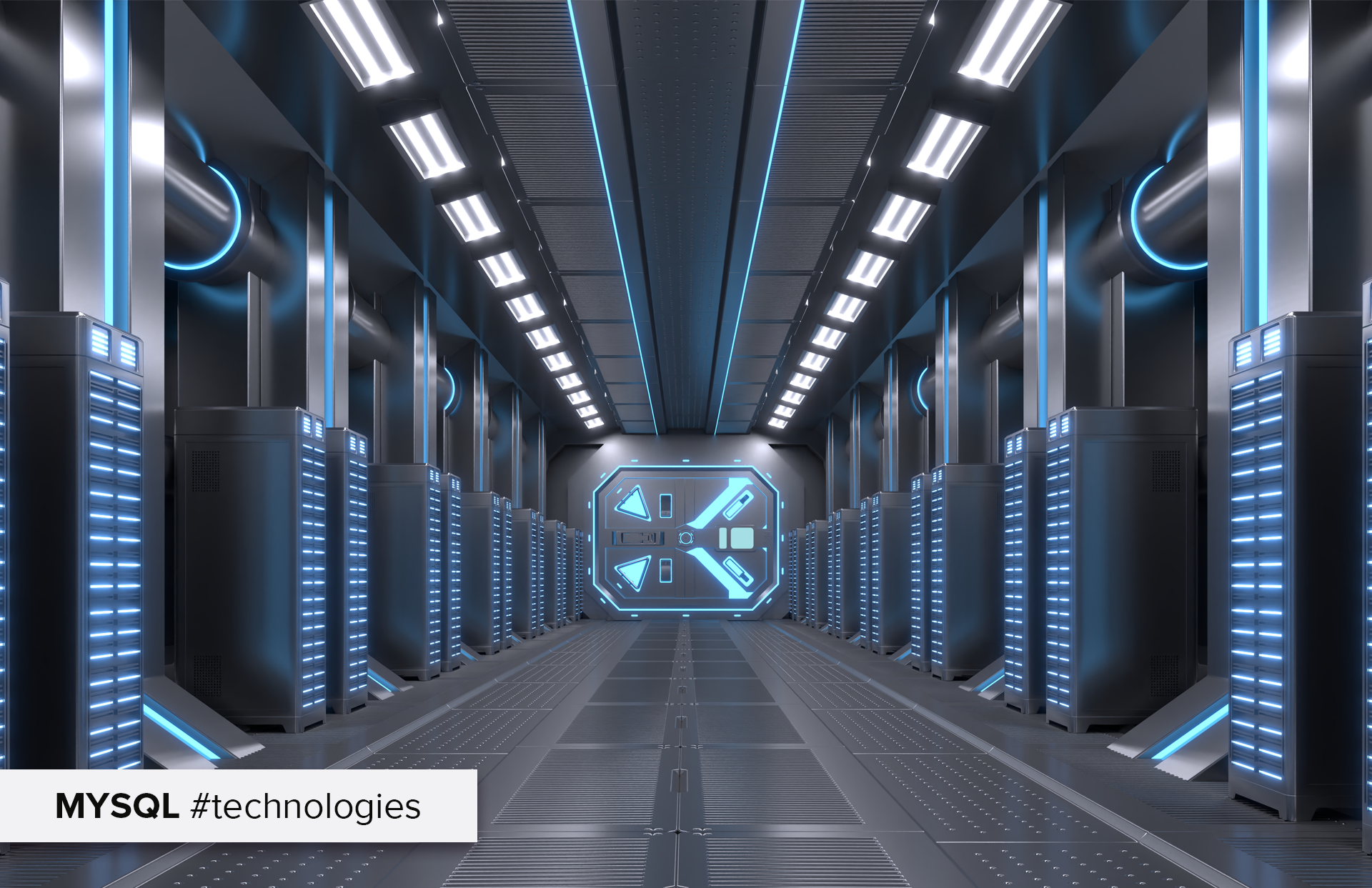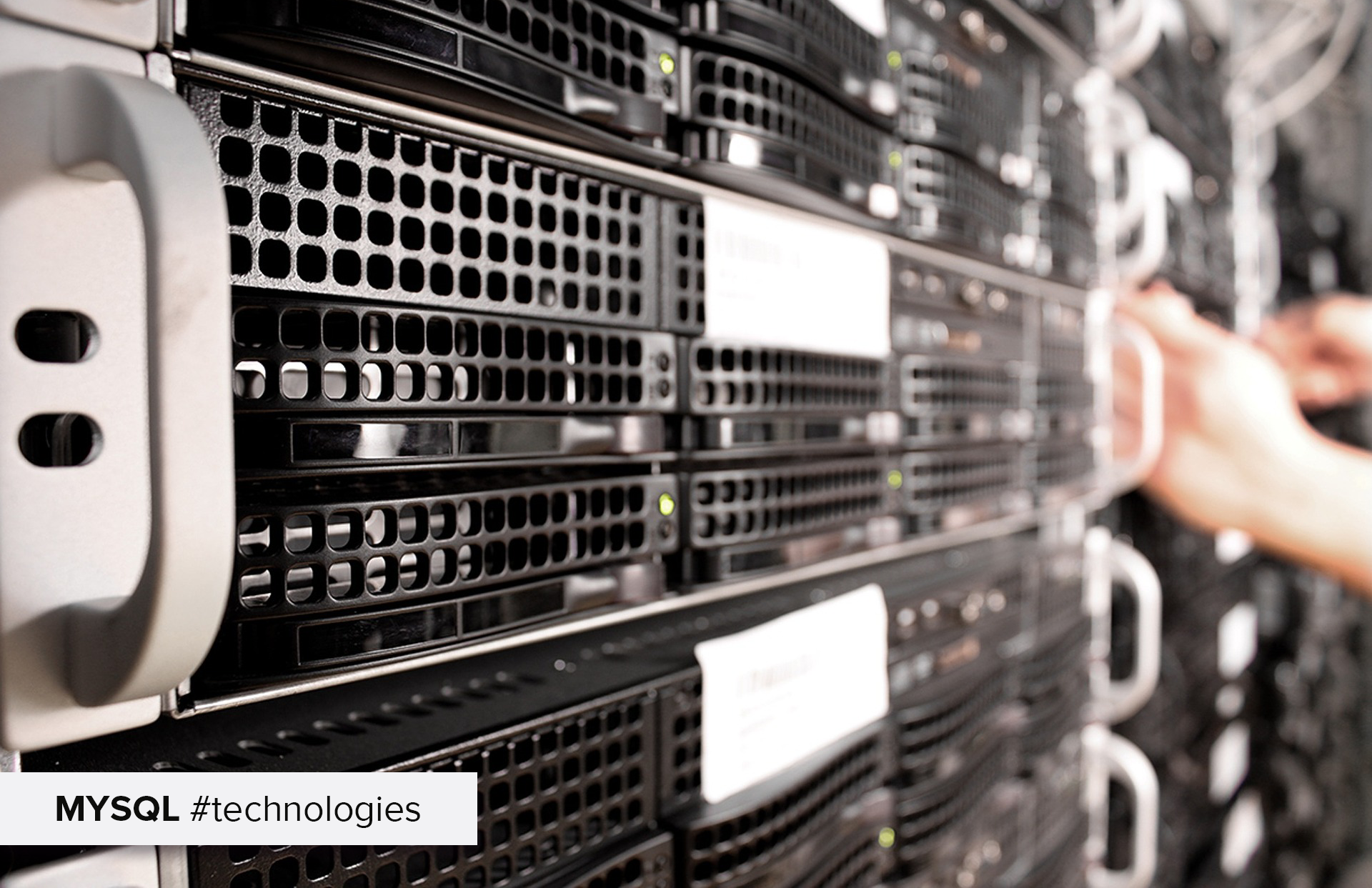Open source is the main point of the list of "what's good about mysql". Developers can modify and customize it to meet the needs of your project, within certain limits. The best DBMSs are Oracle and MS SQL, which you will have to pay thousands of dollars a year to use. MySql is owned by Oracle, so you get almost the same features with it, but without such a convenient development environment and without built-in tools for complex enterprise solutions and 24/7 support. At the same time, everything that MySQL doesn't have out of the box can be written manually, and most importantly, adapted to the resources and tasks of your project. The task of installing MySQL with everything you need to work will take no more than half an hour, and then the DBMS can be expanded and modified almost unlimitedly.

MYSQL
MySQL is a database management system. It is a program for creating, configuring, and using a database for your website or application. MySQL is the most famous DBMS that can be called a classic. It is a product with a free license and a long history. Many extensions and plugins make it possible to use it in a project of any scale. MySQL is used by all Google and Facebook programs, as well as millions of web applications around the world.
MySQL is a database management system. The database stores all information about the content, functions, and users of a website or application on the server. If it is a relational database, it means that the information is located in structured and tightly linked tables. This format makes the system not very flexible, but reliable and productive.
What does MySQL do? It organizes the interaction of your users with the database. A lot of code will be written on the backend of your website or application, combining the user interface and the database. Authorization, site search, online payment are just the most basic functions that MySQL is responsible for.
Databases are a mandatory part of every website and application. In any case, you will have to choose one of the DBMSs. Which database system is right for your project depends on its features. For example, MongoBD is better suited for fast development of an MVP startup, and Postgresql is better suited for complex projects with a lot of integrations, but not necessarily. In your case, it may be easier and more profitable to use mysql, the most versatile and basic option.
MySQL provides reliability, which is important for business. Consistency means that all data will be strictly structured and clearly linked to each other. Managing products and users is easier, as well as conducting analytics. Transactional guarantees that all operations in one "list" will either be executed or not. A simple example: paying for a product or service on a website. The money will either be debited from the user's account and credited to yours, or it will remain in the user's account in case of an error. With a relational database, it will never happen that the money "hangs" somewhere between these states.
MySQL is available in several versions, so most small and medium-sized projects will have enough power and functionality, even the standard version. Web applications implemented with its help will be reliable, productive, and scalable. Enterprise and Cluster (CGE) are advanced versions with additional features for high-load and complex projects. Storage and processing of large volumes of e-commerce data, multi-level business intelligence, and much more can be easily and securely organized with MySQL.
Like most other IT technologies, MYSQL is a de facto standard. It is a classic, versatile, and quite flexible database thanks to community improvements. Its capabilities have been improved for more than 40 years. At the very beginning, MySQL had no worthy competitors at all, and now, even a large number of them cannot displace it from the top of the list of the most popular and demanded DBMSs. This means two things for you. First: your web application will use a reliable and basic solution that is trusted by international corporations. Secondly: the web application will be developed quickly, because there are more than enough experienced specialists on the market.
MySQL can be a very cumbersome and slow system with many add-ons, but it doesn't have to be. If you use the cleanest possible framework to work with simple tasks (and the list is long enough to be enough for the stable operation of a medium and even large online store), you will get data reading speeds that no other DBMS has. Security concerns are one of the main reasons to use mysql - you can set multi-level passwords and access levels for users, as well as use replication, a function of exchanging information between several hosts, which allows you not only to set up backups, but also comes in handy when scaling a database.
Among the basic features of MySQL are powerful analytics tools. With its help, you can find out who your top users, suppliers, or employees are according to various parameters, rank products or services, evaluate marketing effectiveness, and so on. All this and other information is already stored in your database, you just need to choose plugins or write extensions from scratch that will collect and display it to you.
MySQL - reliability, security, and a solid classical approach. This DBMS is suitable for projects of any scale, is the fastest to cope with basic tasks, and can be maximally adapted to your project. MySQL is easy to install and configure, and then scale with your website or application.
Ecommerce Development Services Ecommerce Development Services
We help to build a successful ecommerce business with flexible, scalable and custom solutions. Using our wide expertise, we guide companies through the complexities of ecommerce efficiently, with solutions that adapt to their unique needs.


